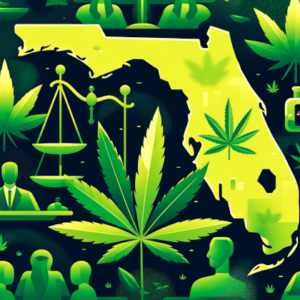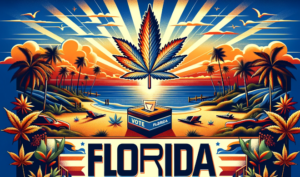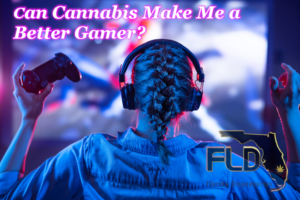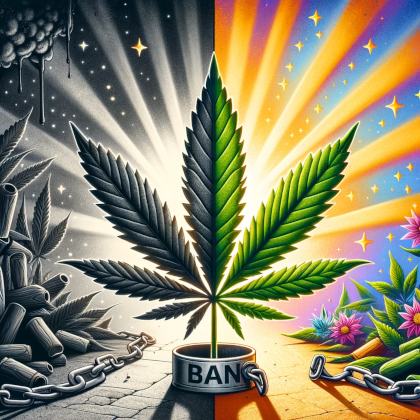
Florida’s THC-Capping Bills Fizzle Out This Session While Hemp Ban Bill Heads Out For Governor’s Signature
Over the last few months, cannabis users and businesses alike have been struggling with a lingering sense of impending doom as controversial bill after controversial bill threatening to reshape the landscape of cannabis and hemp regulation in the Sunshine State made waves in both the House and Senate.
Multiple bills, many of which with many similarities, aim to impose THC caps on not-yet-legal recreational cannabis markets, alter packaging materials, and put tighter restrictions on hemp and hemp-derived cannabinoids. The bills cite public safety, keeping cannabis away from kids, and protecting the public, though many residents and businesses within the industry tend to disagree.
Now, we have some good news and some bad news. The good news is that the majority of the cannabis-related bills are dead.
As the dust settles on the current legislative session, Floridians can breathe a tentative sigh of relief. The bills aimed at the nonexistent recreational market cast a pall over the future of cannabis regulation in the state. But they’ve faltered, failing to secure the necessary traction to advance. Between a lack of votes, disagreements between the Senate and the House, and fiscal policy, residents can look forward to the prospect of recreational cannabis being legalized in November instead of worrying about bills that curb their choices.
SB 7050 sought to impose stringent THC caps, including limits of 30% on flower and 60% on extracts. At the same time, the House was working on something similar with HB 1269, which would’ve limited it to a mere 10%. Both bills stumbled despite their initial momentum— which came as a welcome surprise as several others passed unanimously in either the House or the Senate. The failure of these bills represents a triumph for science, reason, and the people’s will over misguided attempts at pre-emptive regulation.
But now for the bad news.
Some of the bills that were discussed in this session also pertained to Florida’s hemp industry, which employs thousands of people and serves as an alternative to medical marijuana for people who don’t quite qualify. In what seems to be an attempt to make way for recreational cannabis, HB 1613 and SB 1698 aimed their sights on capping hemp products and banning certain hemp-derived THC products or synthetic cannabinoids (like delta-8 THC) despite a ton of pushback from pretty much everyone.
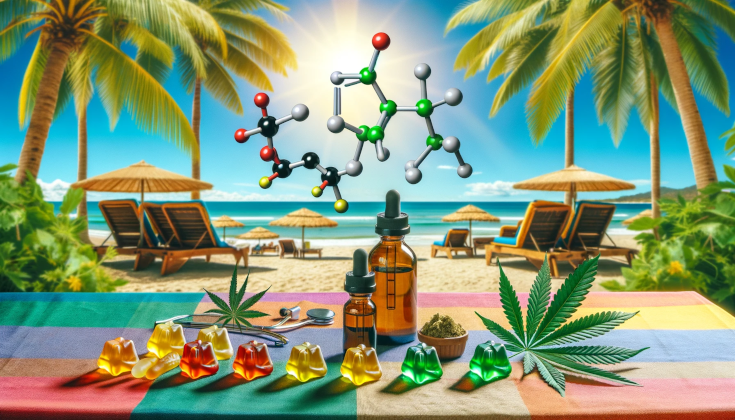
Unfortunately, SB 1698 has sailed through the chambers despite fervent objections from business owners and consumers alike and is now waiting on Governor Ron DeSantis’ signature to be signed into law.
SB 1698, takes aim at a spectrum of hemp-derived products, including popular items like gummies, tinctures, and vapes that contain delta-8 THC, delta-10, THC-V, and THC-P. However, the wording of the bill puts other hemp products at risk, including CBD and hemp oils. It’s an outrage, and strikes at the heart of a thriving industry that has become a vital economic driver (bringing in $10 billion in 2022) and employer for Floridians, with over 100,000 residents finding work within its folds.
More importantly, this bill would affect real people with real stories.
Take Tracy Thaxton Berg, for example. Tracy is a mother who has witnessed firsthand the transformative power of hemp oil in managing her daughter’s epilepsy. With this bill on the line, she contemplates the prospect of being forced to leave the state without access to her daughter Riley’s medicine. For Riley, hemp oil has been a lifeline and has kept her seizure-free for 8 years. But with the specter of prohibition looming, their future hangs in the balance as they find themselves at the mercy of policymakers who are completely deaf to the real ramifications of signing this bill into law.
Meanwhile, the proponents of the bill dismiss these concerns with callous disregard, painting hemp products as little more than drugs that make people high and ignoring the countless testimonies of people whose lives revolve around the hemp market when medical marijuana isn’t very easy to qualify for. Veterans, people with chronic pain, and those with other invisible disabilities rely on hemp products to enjoy life.
The way this bill has progressed seems like yet another case where the pursuit of profit outweighs the plight of those who depend on these products for their well-being— a chilling testament to the priorities of those entrusted with shaping the future of Florida’s hemp industry. If this gets signed into law, thousands of people will be put out of work, small businesses will close, and residents who have come to rely on hemp for their well-being will suffer.
With the bill’s outright ban of hemp-derived synthetic cannabinoids, it also aims to cap hemp’s delta-9 THC levels. The funny thing is that this ban seems to unfairly favor the medical marijuana industry and the potential of the recreational cannabis industry. They don’t care that these substances are in Florida, only who qualifies to sell them. Even worse, it’ll take away a lot of the legitimate funds coming from the hemp industry and surrender it back to the black market and the businesses from out of state actively supplying Florida’s dispensaries.
As the bill awaits the governor’s signature, the fate of Florida’s hemp industry hangs in the balance. For those who have invested their hopes, dreams, and lives in its promise, the stakes could not be higher. Whether the hemp industry emerges victorious or vanquished, it’s ultimately up to a single signature.




